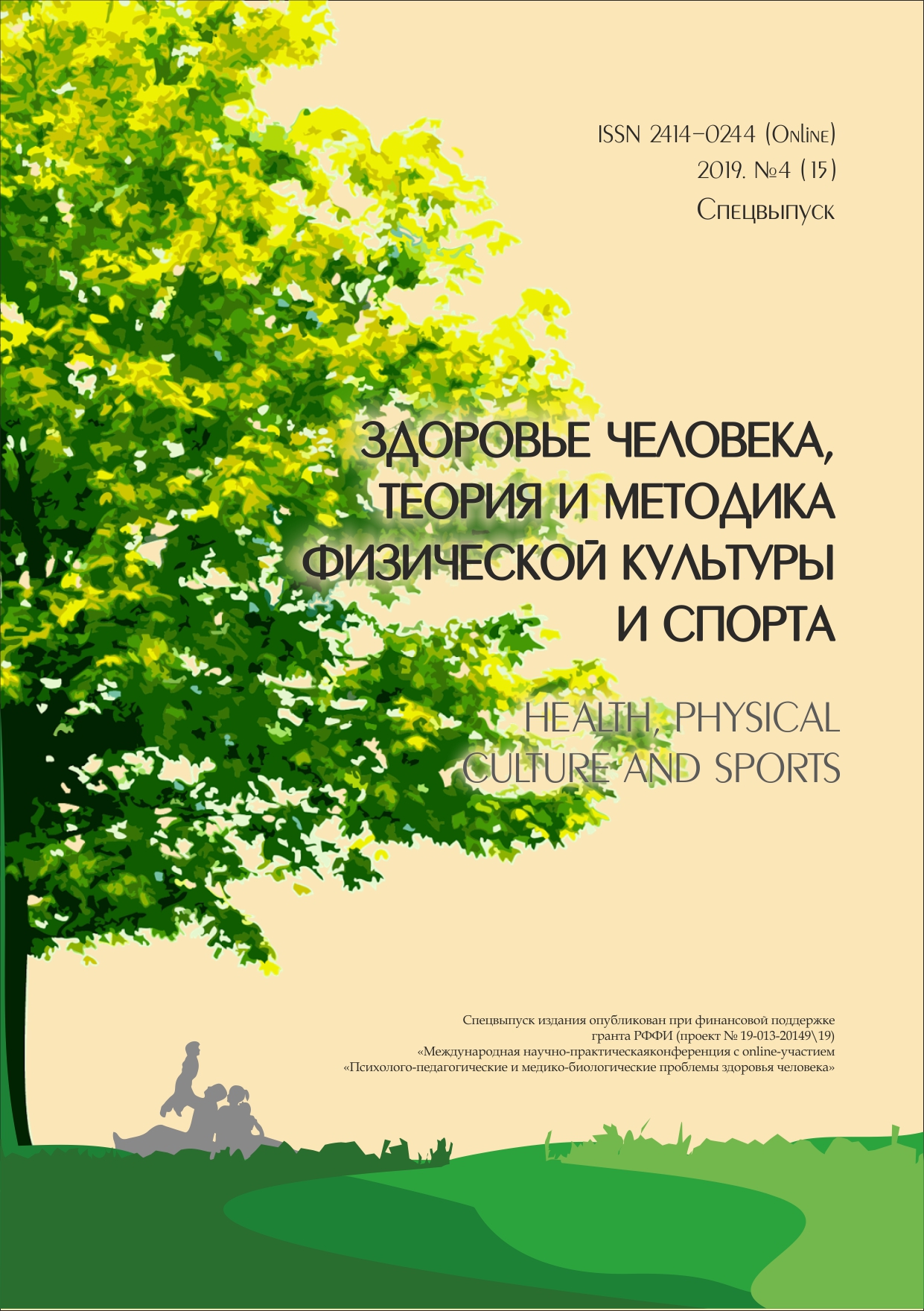FEATURES OF THE INCLUSIVE CULTURE OF ADOLESCENTS
Abstract
䜍e authors of the article examined the transformations of the education system associated with the organization of an accessible environment with disabilities (hereina麣er HIA). It is shown that inclusive education in Russia is at the initial stage of formation, therefore, the authors of the article believe that it is necessary to carry out comprehensive work at the school to develop an inclusive culture, this work becomes especially important for adolescents, as in adolescence leading activities change, thereby communicating with peers come to the fore and determine development.䜍e study showed that adolescents con験rm the existence of friendships among students, including with children with disabilities, however, they do not have a 験rm belief in understanding the content of inclusion and inclusive culture. 䜍e general results of assessing the level of formation of an inclusive culture among high school students have shown that the level of formation of an inclusive culture in adolescents as a whole is not high enough. 䜍ese results indicate the need for the formation of an inclusive culture in adolescence. In turn, adolescents with disabilities have o麣en a more formed inclusive culture, a higher level of formation of an inclusive culture of adolescents was also noted in classes where adolescents with disabilities are taught together with other children, and a lower level of inclusive culture where there are no students with HIA.As a result of the study, a general conclusion was drawn that the development of shared inclusive values and cooperative relationships can lead to changes in communications in general and this process should be started throughout the entire educational process. Inclusive culture is formed in the school and determines the direction of activity and the organization of the pedagogical process as a whole.
Downloads
References
Алферова Г. В. Социализация и социальная адаптация ребенка инвалида в условиях инклюзивного образования // Гуманитарные исследования. 2013. № 4 (48). С. 120–126.
Малофеев Н. Н. Западноевропейский опыт сопровождения учащихся с особыми образовательными потребностями в условиях интегрированного обучения (по материалам Доклада Европейского агентства по развитию специального образования) // Дефектология. 2005. № 5. С. 3–18.
Артюшенко Н. П. Организационно-педагогические условия обучения детей с ограниченными возможностями здоровья средствами инклюзивного образования: дис. … канд. пед. наук. Томск, 2010. 180 с.
Пронина Н. А. Подготовка будущих учителей к работе в инклюзивной среде на примере дисциплин психологического цикла // Молодой ученый. 2014. № 7. С. 287–289. URL: https://moluch.ru/archive/66/10962/ (дата обращения: 05.10.2019).
Бут Т. Показатели инклюзии: практическое пособие / пер. с англ. И. Аникеев; науч. ред. Н. Борисова, под общ. ред. М. Перфильевой. М.: РООИ «Перспектива», 2007. 124 с.
Щербинина Н. Г. Формирование инклюзивной культуры. Сургут: Реабилитационный центр для детей и подростков с ограниченными возможностями «Добрый волшебник», 2017. 6 с.
Фоменко Н. В. Подростковый возраст как наиболее сложный этап развития ребенка // Вестник Таганрогского института имени А. П. Чехова. 2014. С. 201–204.
Гринина Е. С. Отношение молодежи к лицам с ограниченными возможностями здоровья // Изв. Сарат. ун-та. 2015. Т. 4. Вып. 4 (16). С. 333–337.
Вачков И. В. Модели формирования толерантного отношения к детям с ОВЗ у их сверстников // Психологический журнал. 2011. С. 155–157.
Першина Н. А. Становление и формирование инклюзивной культуры в контексте исследования готовности учителя // Образование лиц с ограниченными возможностями здоровья: опыт, проблемы, перспективы: материалы II всероссийской (заочной) научно-практической конференции, г. Барнаул, 24–25 февраля 2017 г. Барнаул: АлтГПУ, 2017. С. 293–297.
Першина Н. А., Шамардина М. В. Оценка сформированности инклюзивной культуры в образовательных организациях родителями учащихся. Инклюзивное образование в сфере культуры: материалы Всероссийской научно-практической конференции, Барнаул, 20 апреля 2019 года; Алт. гос. ин-т культуры. Барнаул: Изд-во АГИК, 2019. С.140–148.
An author should not normally publish manuscripts describing essentially the same research in multiple journals or publication venues. Such redundant publication is generally considered to constitute unethical publishing behavior, and if discovered may result in a manuscript under consideration being rejected, or a published article being retracted.
Authors of manuscripts reporting on original research should present an accurate account of the work performed, accompanied by an objective discussion of its significance. Underlying data should be represented accurately in the manuscript. The manuscript should contain sufficient detail and references to permit others to replicate the work. The fabrication of results and the making of fraudulent or knowingly inaccurate statements constitute unethical behavior and may be cause for rejection or retraction of a manuscript or published article.





